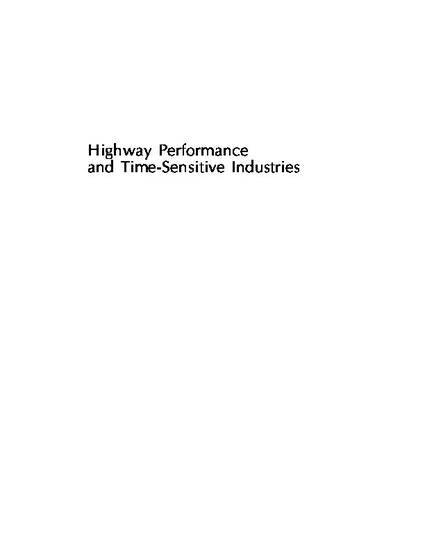
Communities and states are using every means available to them to attract and retain economic activity. One such strategy is to plan for the changing needs of new and existing businesses. In the past two decades, firms have come to view time as one of their most precious resources. Some businesses have adopted efficiently timed production methods like just-in-time, in which inventory and safety stock are minimized; deliveries of intermediate goods at all stages of production are synchronized with suppliers so that at no point do products linger. Highway projects that reduce unnanticipated delays enhance the ability of time-sensitive businesses to maintain closely timed production and sales schedules. Perhaps the most important type of delay in this context is that produced by incidents, which are events that disrupt normal traffic flow. In addition to accidents, incidents include stalled vehicles, debris on the road, or other impediments to orderly flow. While they are rare events, incidents do happen, and they can greatly affect travel times, especially on roads operating at near capacity. Highway improvements can reduce the likelihood of incidents and reduce the severity of impacts when incidents do occur. How to measure increases in highway system performance for time-sensitive businesses when these systems are upgraded is a focus of this monograph. We begin by examining the changes in the business environment that precipitated the movement toward time-sensitive production. Then, from an extensive survey, we conclude that although businesses in Iowa are somewhat less time-sensitive than businesses in many other places, Iowa’s businesses anticipate tighter production schedules in the future. We show how traffic incidents and incident-produced congestion erode highway performance for time-sensitive industries. An analysis of the causes and consequences of incident-produced delays provides the foundation for our model of incident-produced delay, which we have developed to gauge highway performance for time-sensitive firms. This research was a joint effort between researchers at the University of Iowa Public Policy Center and Iowa State University’s Department of Transportation and Logistics. The Iowa Department of Transportation provided funding for this project.
Available at: http://works.bepress.com/michael_crum/4/
